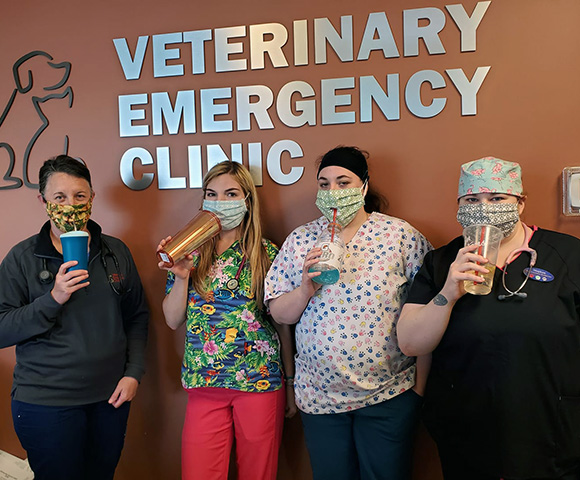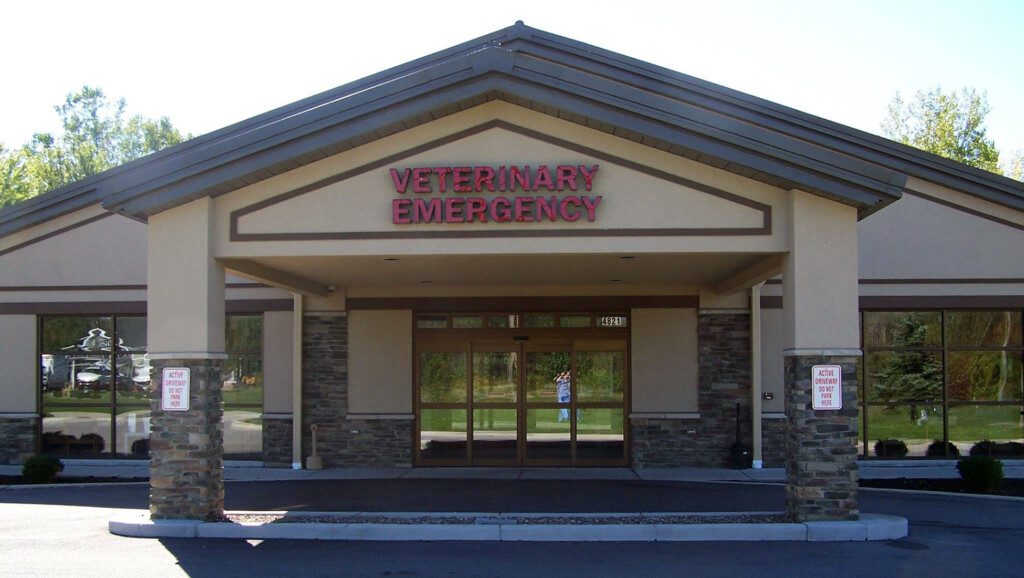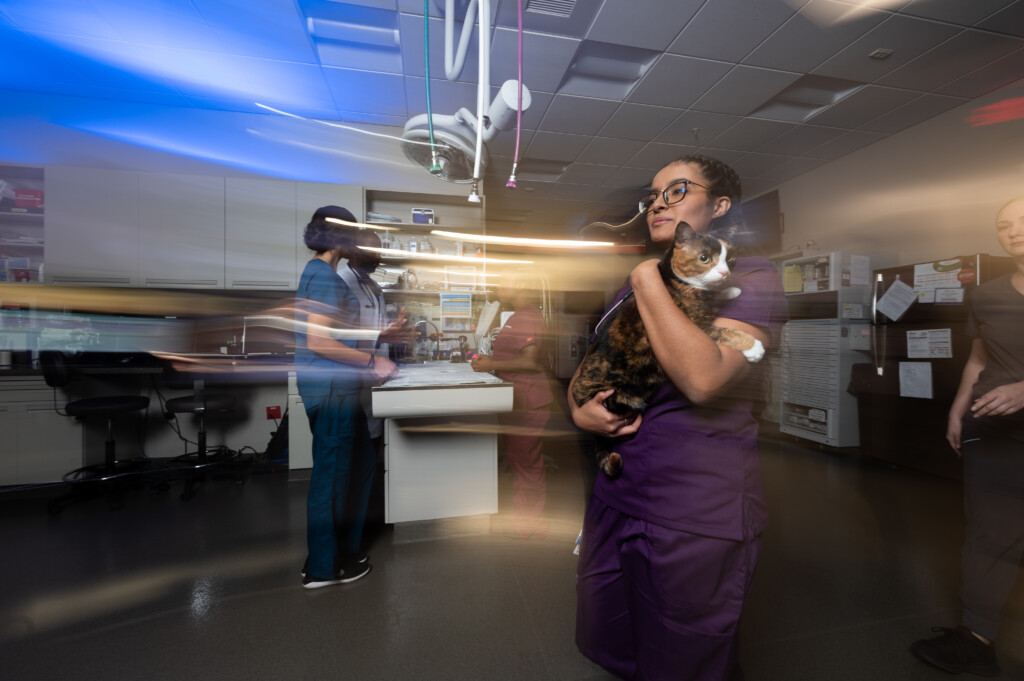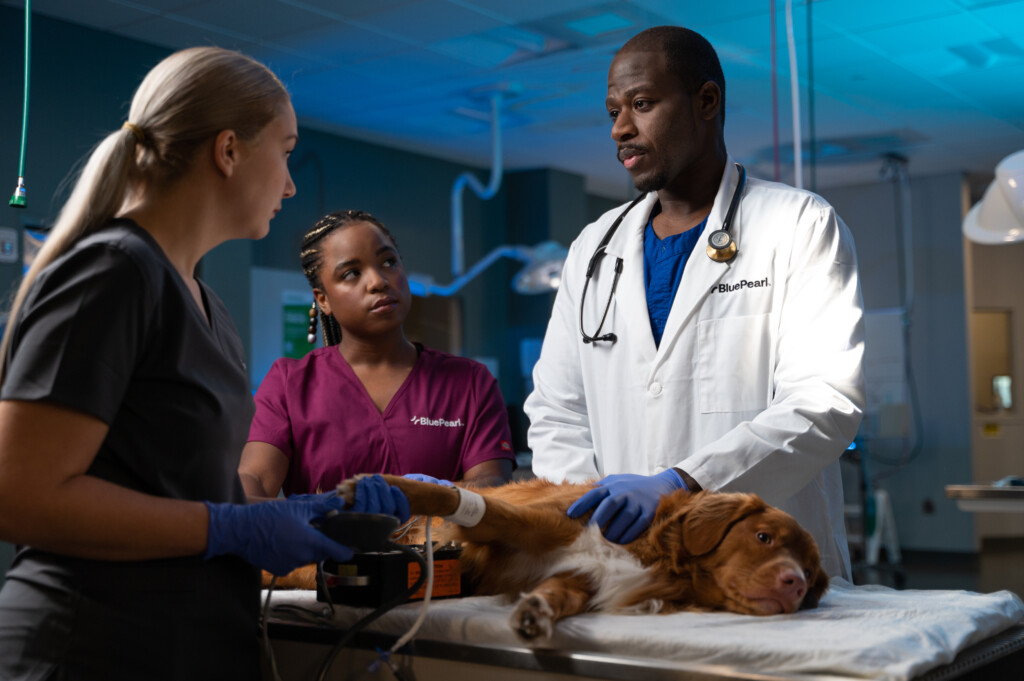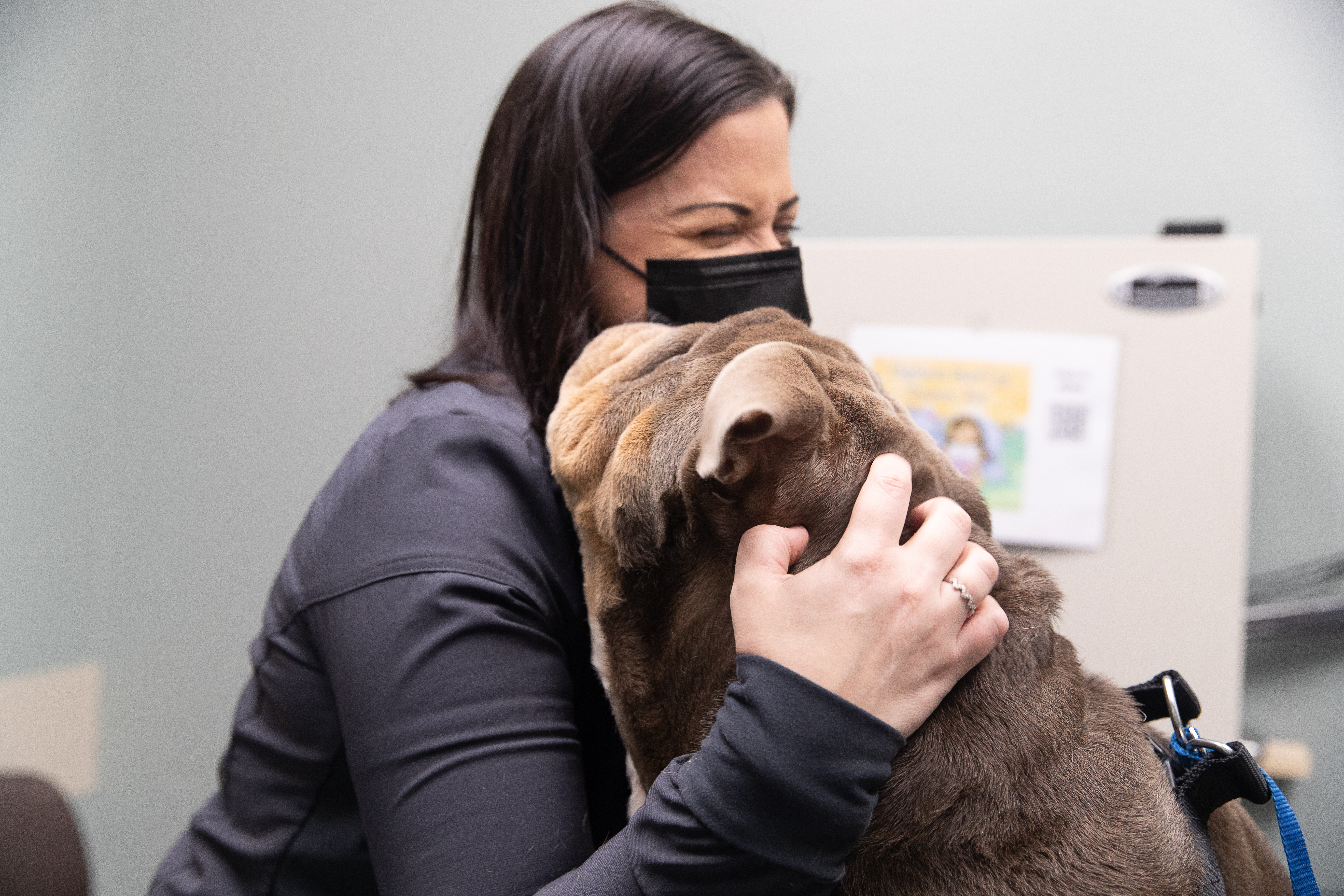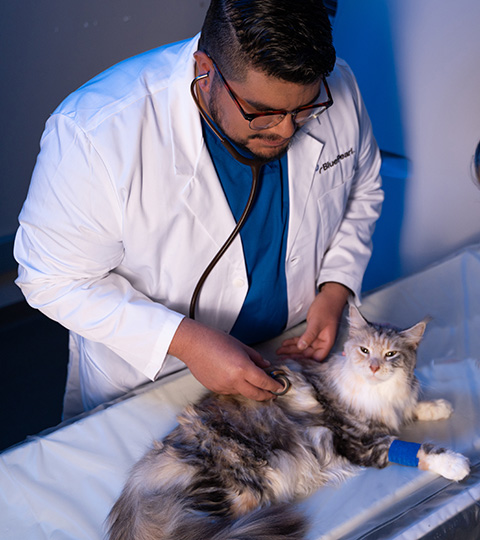URGENT NOTICE: Our ER is experiencing a high volume of cases. Please call ahead so we can talk you through your pet’s situation and prepare for your arrival.
Emergency care for pets when they need it most.
Our services.
Our
veterinarians.
About our hospital.
Testimonials.
“Thanks for all your care for our pet, Bono! He is doing so well and is walking and jumping too. We are so grateful for all your care that was given in his recovery.” — Kim J.
“We just wanted to let you know how appreciated you are. I can’t thank you all enough for saving my little kitty. He has all his spunk and cuddliness back and it is all thanks to you. Hope you all have a very merry Christmas and happy New Year!” –Bandit and Briana
“On Saturday, I called your clinic when my sheltie, Randy, was having a seizure (he is doing well now). I was so scared. I don’t know the man I spoke with, but he helped me so much. He was so calm and took the time to talk. He asked questions and told me if Randy had another seizure to bring him in. He truly helped me through. Thank you so much for your kindness. It meant the world to me!” — Jenn and Randy
“We just wanted to thank everyone for the time and compassion that was put into Nacho. We couldn’t have asked for a better team. It means so much to see how much everyone truly cared, I know you did everything that you could. We appreciate your sympathy in our time of loss. Thank you for the amazing and caring work that you all do.” — CH and AN
“Thank you for your emergency treatment of our dog Ruby. Your consideration of her health and our finances was greatly appreciated. Ruby is thankfully okay after ingesting some antifreeze and we are very relieved. Will recommend you and visit again if needed.” — Jennifer, Peter F. and Ruby
“My sister and I were in your clinic with our kitty Pastina. The service Pastina received was excellent and everyone was so kind and helpful – thank you so very much. This was not the first time we have been to the clinic and every visit has always provided our pets with excellent care. Again, thank you so much for everything.” — Paulette and Giovanna A.
“Thank you doesn’t begin to scratch the surface of the gratitude we feel. The care and thoughtfulness of the staff are beyond words. For something as heartbreaking and emotional as what we’re going through, your staff handled everything with the utmost care, empathy and respect. One of the most difficult parts of life was made a little easier because of you.” — The Schweitzer & Pasternack Family
